(Queen Mary School, Office of International Cooperation and Exchange) From May 12 to 15, Professor Tim Hunt, Nobel Prize winner in Physiology or Medicine, was invited to visit the university for academic exchange. During his visit, he provided valuable suggestions for the university's development, promoting academic innovation and talent cultivation.
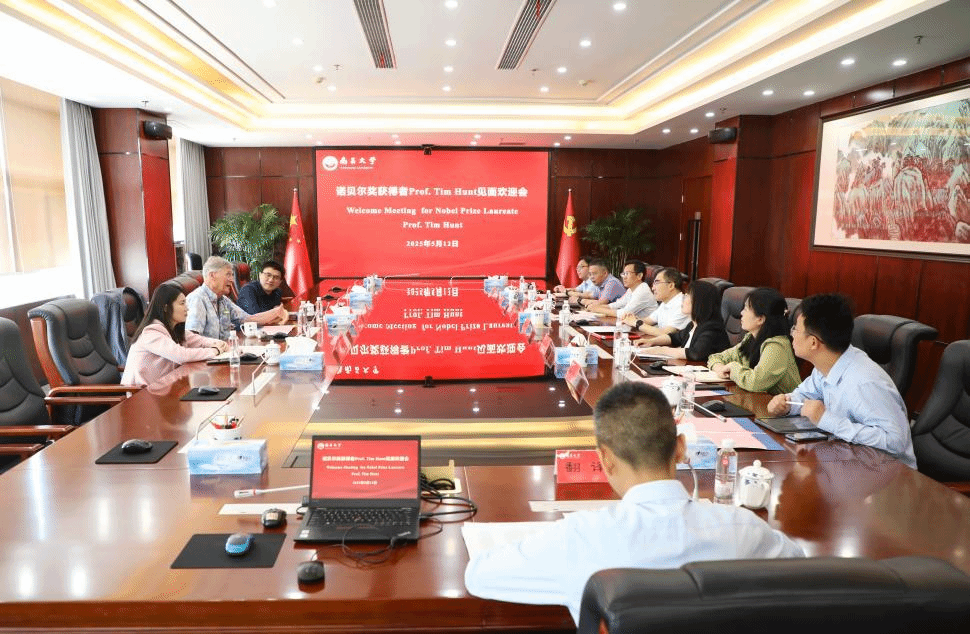
On the morning of May 12, Professor Tim Hunt's welcome meeting was held in the administration building. NCU President, Academician Chen Yeguang, and Vice President Ping Weiying attended the meeting.
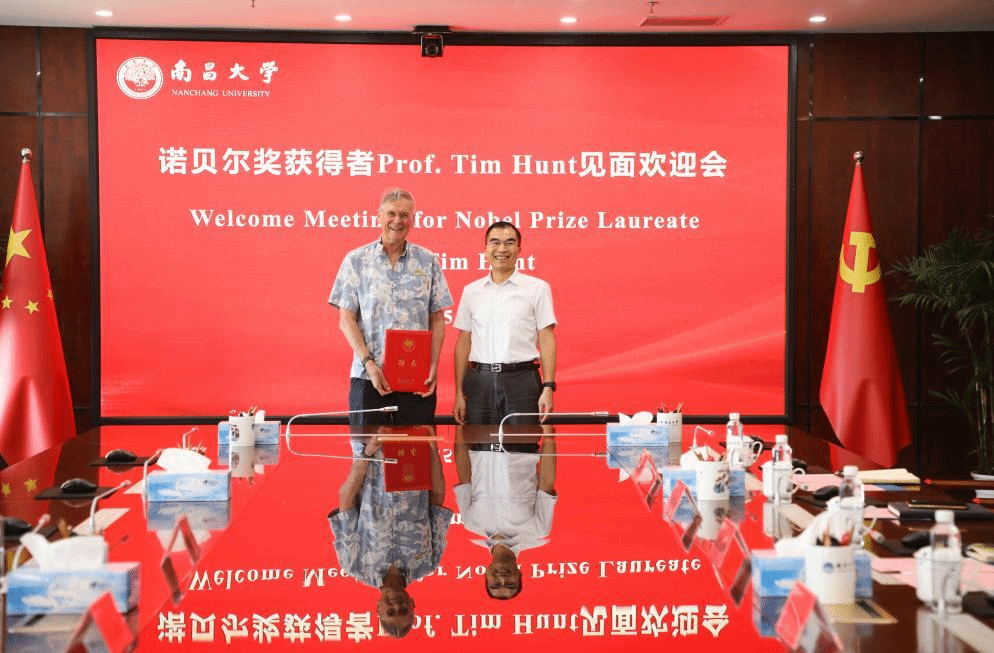
At the meeting, Chen Yeguang provided a comprehensive introduction to the university's disciplinary layout and internationalization achievements. He also presented Professor Tim Hunt with an honorary certificate, expressing the hope that Professor Hunt would offer strategic guidance for the university's goal of becoming an outstanding "research-oriented university" in the "15th Five-Year Plan" with an international perspective. Professor Tim Hunt and Chen Yeguang engaged in a friendly conversation, discussing their views on education and expressing a willingness to support the high-quality development of Nanchang University's higher education.
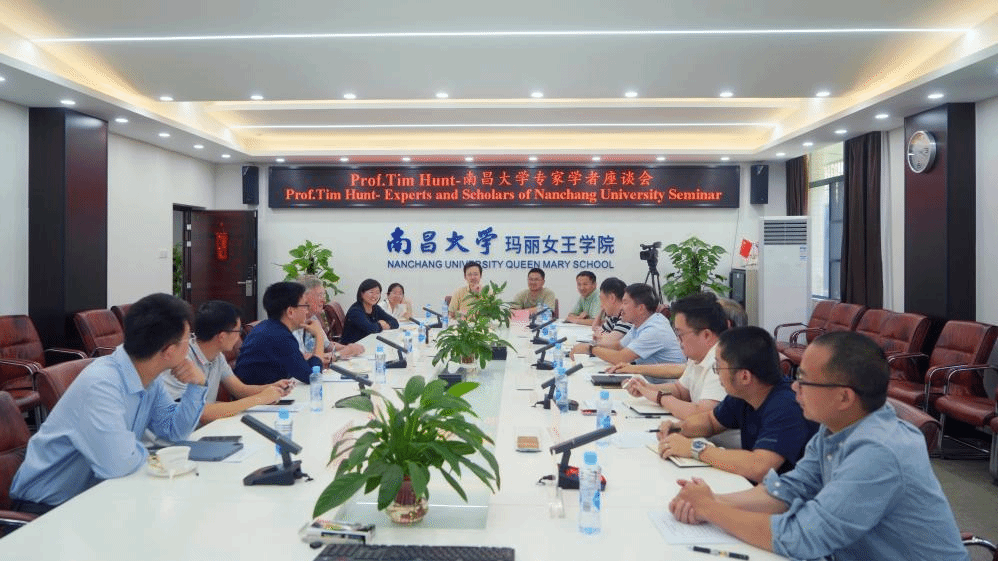
On the afternoon, Professor Tim Hunt attended a symposium with experts and scholars from NCU, held in the Queen Mary School conference room. During the meeting, the experts and scholars shared a series of cutting-edge and in-depth research findings related to their respective fields. Professor Tim Hunt and the participants discussed various topics, including cardiovascular disease treatment and the mechanisms of aging, exchanging ideas and opinions freely. The symposium provided an excellent platform for communication regarding NCU's research in the field of life and health, playing a significant role in promoting research development and talent cultivation in this field.
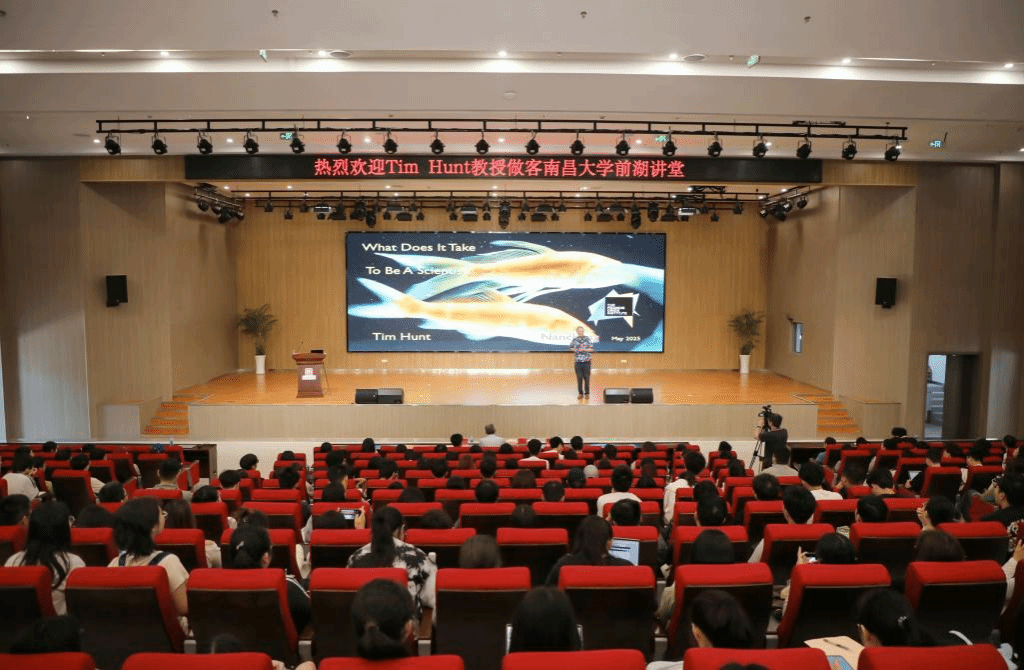
On the morning of May 14, Professor Tim Hunt was invited to attend the 30th session of the "Qianhu Lecture", where he gave an academic report titled "What Does It Take To Be A Scientist?" The lecture was hosted by Vice President Nie Shaoping. In his presentation, Professor Hunt traced his scientific journey, beginning with his childhood passion for science, his studies at the University of Cambridge, and his postdoctoral research at the Albert Einstein College of Medicine. He particularly highlighted his work on sea urchins at the Woods Hole Laboratory in the 1970s and his groundbreaking discovery of cyclin in 1982, which later earned him the Nobel Prize in Physiology or Medicine. During the interactive session, the atmosphere was lively, with students actively asking questions. Professor Hunt listened attentively and provided thoughtful responses, offering valuable insights into scientific research and career development.
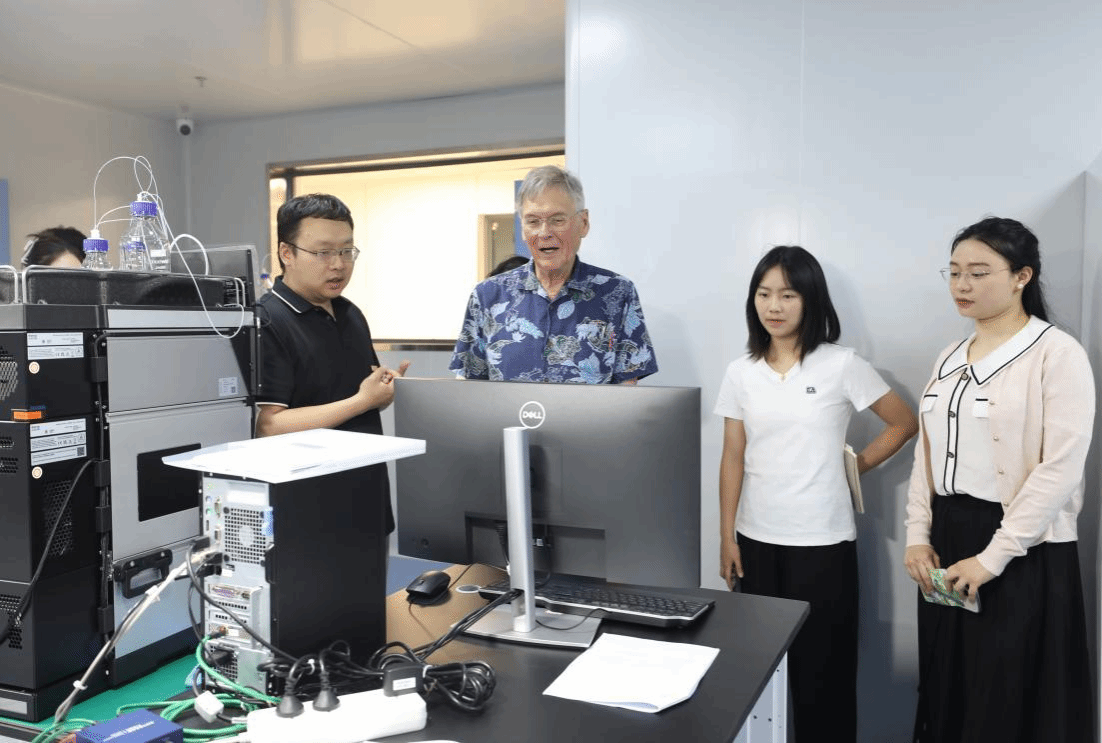
In the afternoon, Professor Tim Hunt visited the Medical Science and Technology Innovation Center, where he gained a detailed understanding of the operation of the university's research equipment and its application results in medical research. During his visit to the Biomedical Testing Center and PI laboratories, Professor Tim Hunt had in-depth discussions with the lab leaders, learning about the research directions, technological breakthroughs, and team building. He expressed high admiration for NCU's innovation capabilities and research environment in the field of biomedical sciences.
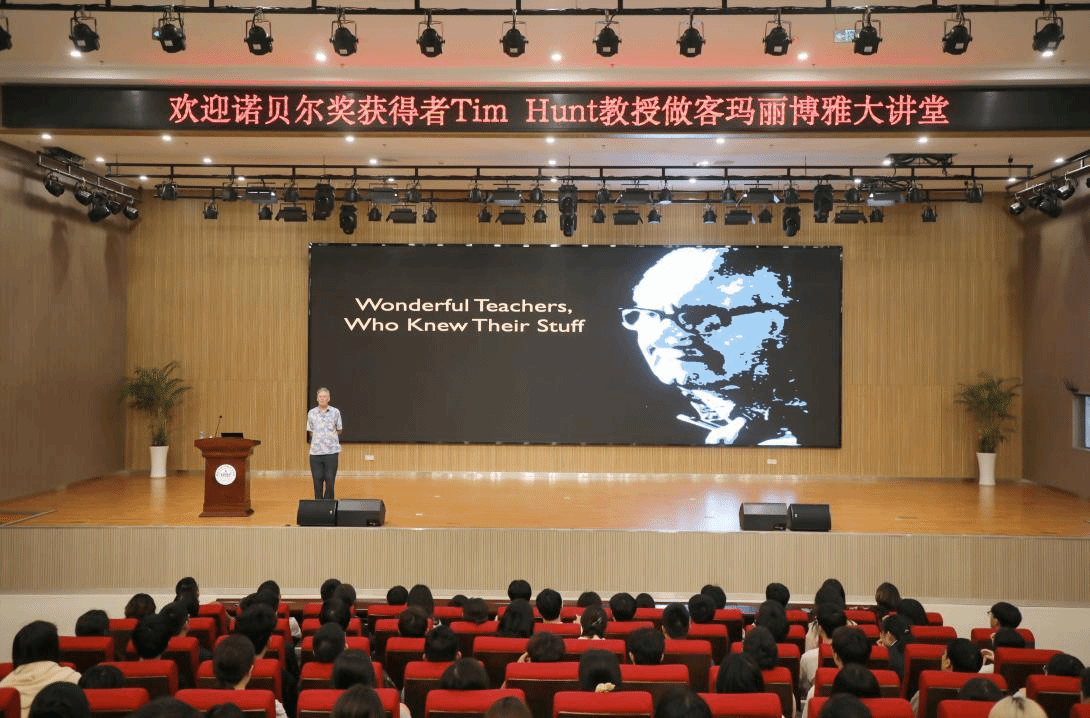
On the morning of May 15, Professor Tim Hunt was invited to the “ Boya Lecture Series of Queen Mary School” and delivered an inspirational lecture to over 400 undergraduate students. With the topic "My Life in Science," he began by discussing the essence of scientific research—"discovering new things." Drawing on his own research experiences, Professor Hunt explained several key factors for college students on the path of scientific research: the spirit of exploration in the pursuit of truth, the innovative courage to experiment, and the spirit of selfless dedication. At the same time, he advised the students to be practical on the research path, solidify the knowledge they have learned, and avoid aiming too high. After the lecture, students actively asked questions, seeking advice from Professor Tim Hunt on their research challenges. Professor Hunt, based on his own experience, answered each question and provided new perspectives and methods. The students expressed that they benefited greatly from the session.
Professor Tim Hunt is a Nobel laureate in Physiology or Medicine, a Fellow of the Royal Society, a member of the American Academy of Arts and Sciences, a member of the European Academy of Sciences, and a foreign member of the American National Academy of Sciences. From 1991 to 2011, he served as the Chief Scientist at the Clare Hall Laboratory of the Cancer Research UK. Since 2011, he has been an Honorary Scientist at the Francis Crick Institute in London and was a Visiting Scientist at the Okinawa Institute of Science and Technology from 2016 to 2022. Professor Tim Hunt's research mainly focuses on cell cycle regulation. He was awarded the Nobel Prize in Physiology or Medicine in 2001, alongside Lee Hartwell and Paul Nurse, for the discovery of key regulatory factors in the cell cycle.
Editors: Xu Hang, Tu Jinfeng, Zhu Wenfang, Xu Han




